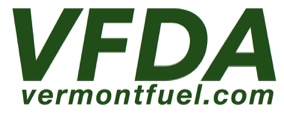Tank Swaps and New Accounts: How CP-111 Works for Propane Retailers and Consumers
New Occupant Homeowners, realtors, and propane sellers frequently ask how to comply with the refund provision in CP-111 during change of occupancy. Many realtors and home sellers would prefer to pro-rate propane at the time of sale, just as they do when selling or buying a home with oilheat. In order to accommodate this, the Attorney General's Office has allowed a Propane Transfer Form created by VFDA to serve as notice. Click here to download the propane transfer form.
Swaps This same form can be used by consumers when switching propane companies. It makes it clear in writing when the customer has switched to a different company and what to do with the tank. While tank swaps are not required by CP-111, propane dealers must “cooperate reasonably with the consumer’s new seller to exchange tanks, when appropriate, taking into account such factors as tank ownership, access, value, propane remaining in the tank, condition, safety and liability.”
Fees CP-111 requires that an "Initial Fee Disclosure Form" be given to the customer before service is established. The line that says “Fee offer good until” on the Initial Fee Disclosure Form (also called FDF) is how long you promise to keep fees at that rate. If you put in a specific date, you cannot increase the fee until after the date has passed. However, the “Fee offer good until” line can be left blank. If you do leave this line blank, you can not change fees for 12 months.
If you decide to increase or add fees, an “Existing Customer FDF” must be issued. Fees can not be increased or added until 60 days AFTER the “Existing Customer FDF” is distributed to the customer. The new or increased fee must be clearly and conspicuously distinguished, through increased font size, bolding, or highlighting.
All fees can be increased with 60 days notice except termination fees. Any fee for the termination of service must remain in effect for one year.
